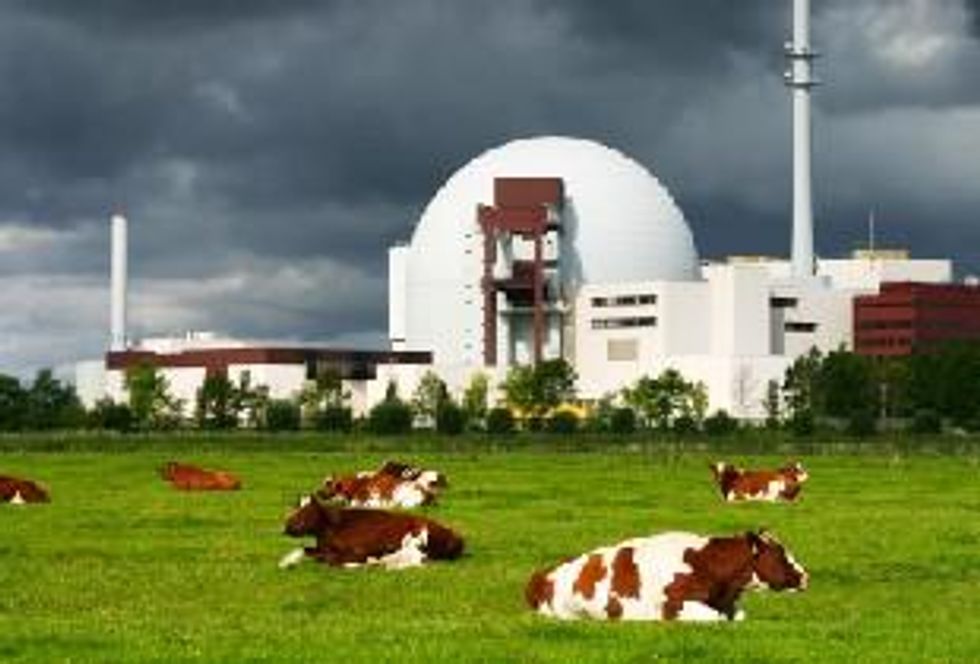In an exclusive interview with Uranium Investing News, Alexei Lebedev, General Director for the International Uranium Enrichment Centre in Moscow, indicated that it is still too early to understand the long term implications of Germany’s announcement to close its nuclear reactors by 2022.
On May 30, the German government announced its decision to close all its nuclear reactors by2022, a critical decision that could have considerable implications. According to the International Monetary Fund and the World Bank, Germany’s economy represents the fourth largest in the world. Last year, nuclear power was responsible for 23 percent of the German domestic energy mix. On Friday, Chancellor Angela Merkel agreed with state premiers on a phased exodus plan of nuclear power and to stick to plans to more than double the share of renewables to 35 percent by 2020. The changes to power grid expansion plans and the subsidy system for renewable energy, such as solar and wind, must be approved by both chambers of parliament in order to confirm the change of course on energy strategy by the parliamentary summer break in July.
Mounting debate
Prior to Germany’s announcement, there had been some underpinning political pressure on the nuclear industry. In 2009, as much as 26 percent of Germany’s energy was supplied by nuclear power, and a previous coalition government had planned to shut down Germany’s nuclear power stations by 2021. The current administration altered the policy last September by announcing intentions to lengthen the life of the country’s nuclear reactors by an average of 12 years. This extension was controversial in Germany before the radioactive leaks at the Fukushima plant, and these reservations were implicitly defined as the country had no planned or proposed reactors factoring into its future energy solutions.
International impact
Last month, UK Energy and Climate Change Secretary Chris Huhne issued an interim report into the events at the Fukushima nuclear plant in Japan and immediate lessons that could be applied to the UK nuclear industry. In the interim report, Dr. Mike Weightman indicated that the UK has displayed a strong safety culture in its response to the leak and current safety measures are adequate. Dr. Weightman also suggested that it would not be necessary to make any immediate safety improvements to operating nuclear reactors in the UK. The country currently operates 19 nuclear power plants, with 13 additional planned or proposed the industry has generated as much as 18 percent of the nations’ electricity.
In an interview with the Times, a former UK government chief scientist, Sir David King, cautioned that global climate change would be difficult to reverse if more countries followed Germany in rejecting nuclear power as a low-carbon source of energy, “The British Government’s decision is based on a technical analysis of risk and a thorough examination of the lessons learnt from Fukushima, which has rightly not deflected it from its plans,” Sir David said. “If other countries wish to follow an example, they should look at Britain’s response rather than Germany’s.”
The International Energy Agency (IEA) issued a report at the end of last month espousing that much of the solution to rising carbon dioxide emissions can be found in enhancing energy efficiency, improving the efficiency of electricity usage and powering electricity with renewable sources of energy, nuclear and carbon capture and storage.
On Monday, French Energy Minister Eric Besson announced that he wants the European Commission to organize a ministerial meeting to discuss the effects of Germany’s decision to phase out nuclear power by 2022. France currently operates 58 nuclear reactors, second in the world after the United States; however, the country still needs to import energy from neighboring countries like Germany when facing seasonal electricity demand peaks during the summer.
In an exclusive interview with Uranium Investing News, Alexei Lebedev, General Director for the International Uranium Enrichment Centre in Moscow, indicated that it is still too early to understand the long term impact of Germany’s announcement. Lebedev noted the recent news might have an impact on nuclear power developments around the world, “especially for the countries located in seismic zones. A lot would depend, however, on how well Japan and the world nuclear community cope with the accident.” Looking forward he was optimistic that “eventually this would lead to safety upgrades in the NPP designs.”






